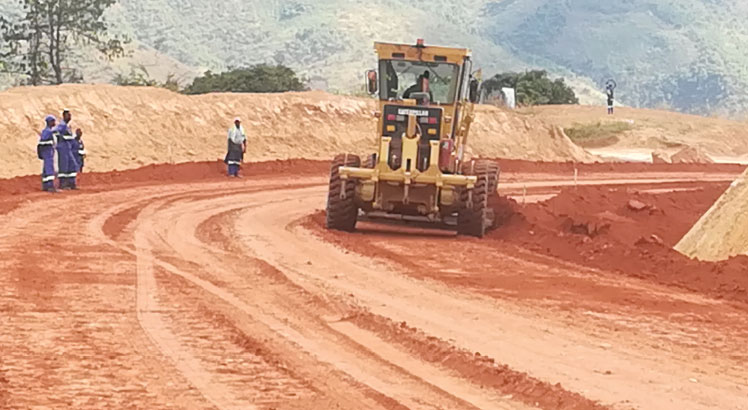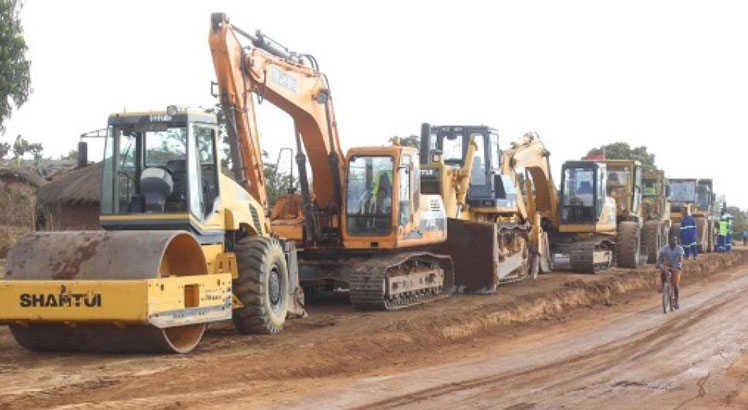K595bn project rolls out 2024
Almost one and a half years after the Malawi Government and the Millennium Challenge Corporation (MCC) signed a second compact worth K595 billion the project is now set to roll out.
Malawi Millennium Development Trust chief executive officer Dye Mawindo told Nation on Sunday in an exclusive interview last week that the Transport and Land Compact is scheduled to be launched end of January or early February next year.

He said the delay was necessary since the Malawi Government wanted to finalise all the conditions precedent (CPs) to avoid missing the five-year deadline.
CPs are conditions that must be met by the Malawi Government before Compact Facilitation Funding Disbursements.
Said Mawindo: “We feel comfortable to launch end of January or early February because there won’t be much delays. The MCC compact programmes are tricky in terms of duration. The minute you switch on the clock, there is no turning back. If the clock goes and hits the five-year mark, the funding stops automatically.”
US Ambassador David Young in a separate interview confirmed the launch of the project.
He said: “The new compact that has to do with roads and infrastructure is likely to enter into force early next year, and that will start the formal clock of five years that the compact needs to be finished.”

Malawi qualified for the second compact towards the end of 2018 and MCC formalised the award with a signing ceremony in September 2022 that President Lazarus Chakwera attended in Washington DC, United States of America.
According to Mawindo, CPs such as designs for the four roads expected to be completed within two years, are now awaiting approvals.
Said Mawindo: “The first compact could have failed in terms of completion of the project because when the clock started ticking, we were [still] developing the designs. But we performed well and completed the project. So we have learnt our lessons and what we are saying is that all the detailed designs should first be finalised before the launch.”
In a telephone interview last week, Minister of Transport and Public Works Jacob Hara attributed the delays to the donor’s close supervision of the processes.
The new compact will focus on increasing land productivity through sector reforms, improving road infrastructure to reduce transport costs from the farm to the market and incentivising private investment into inclusive agriculture products.
The four roads with a combined length of 300 kilometres (km) are Chileka through Malingunde-Likuni (53km), Chamtulo on Golomoti to Monkey Bay Road-Mkutumula (79km); Euthini-Chikwawa in Rumphi (67km) and Mkanda-Linga, Kasungu (88km).
The CEO added that studies for the project affected persons (PaPs) are also underway to establish whose assets along the road will be affected and how much is their compensation.
Mawindo said the first suggestion was that all the four roads should be under one contractor but that option was considered risky and was abandoned.
He explained that another option was to divide the four roads into two lots but that too has its risks so tentatively it has been agreed to have seven contractors, one for 53km Chileka to Likuni Road (the shortest) while the remaining three roads will each have two contractors.
Said Mawindo: “If we are to have seven contractors then the construction should not take more than two years. The advantage of such an arrangement is that in the event of any surplus monies then there is still time to utilise the balance of those monies.”
In October 2021, MCC engaged a consultant to undertake a detailed feasibility study of the shortlisted eight corridors to assess and rank them according to the expected economic benefits.
Another condition, said Mawindo was to update some laws to do with roads, and Parliament recently passed the Public Roads Act which, among others, gives powers to district councils to have sustainable resources to maintain roads after they are constructed or improved.
He also indicated that a total of 21 designated positions of key personnel are expected to be filled before the launch.
Commenting on the land project component, Mawindo explained that it aims to increase land productivity by carrying out reforms to expand land-based revenues, address institutional change, and increase resources for key services to increase investment in land.
He pointed out that there are bottlenecks in the issuance of title deeds, adding that the process is an expensive exercise as people have to travel long distances to pay ground rates.
Said Mawindo: “The system is not good. We need to make land more productive. Sustainability lies in the city councils, Ministry of Land and having access to financial resources through collections and rationalisation.”
At least $244 million has been budgeted for the four roads while $44 million is for the land project and another $ 8.5 million will go towards a project called American Catalyst Facility for Development.






إن تركيبات uPVC التي ينتجها مصنع إيليت بايب Elite Pipe مقاومة للغاية للتآكل ، وتوفر حلولاً موثوقة وخالية من الصيانة لأنظمة الري والسباكة.
عندما يتعلق الأمر بأنابيب uPVC ، فإن مصنع إيليت بايب Elite Pipe يضع معايير عالية من خلال منتجاته المصممة بدقة والتي توفر حلول سباكة وري موثوقة وخالية من التسرب.
Wow, superb blog layout! How long have you been blogging for? you make blogging look easy. The overall look of your site is magnificent, as well as the content!